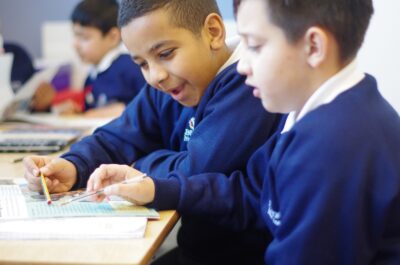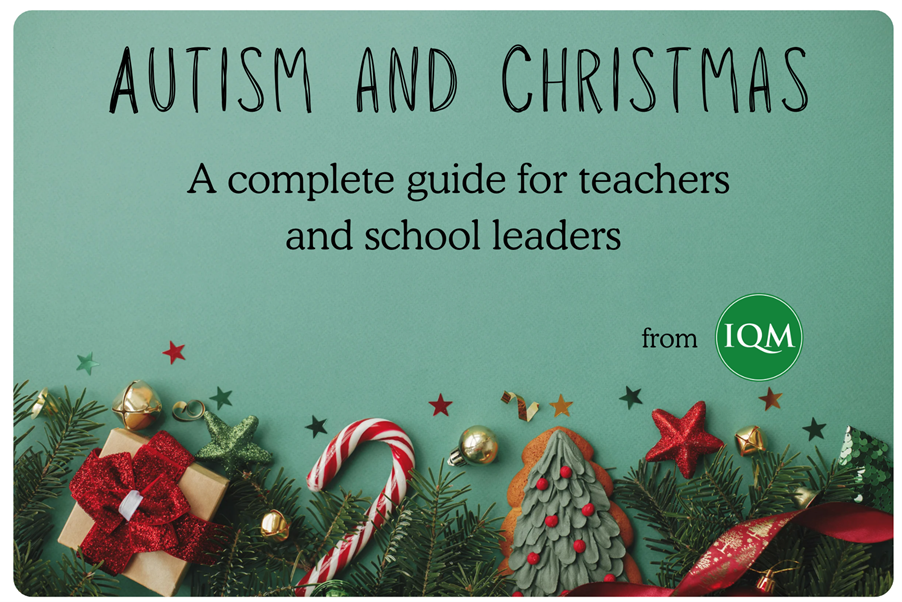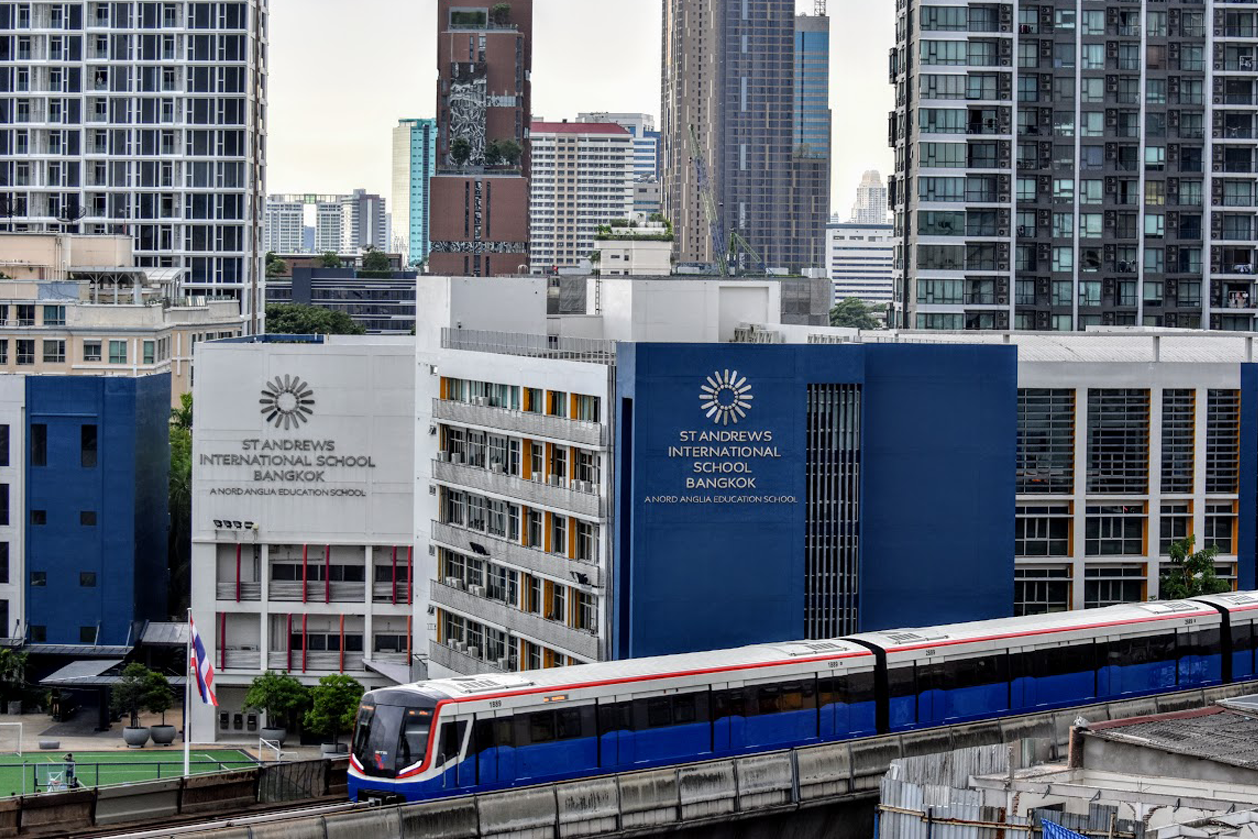Who is IQM?
IQM is the only national inclusion award in the UK. For over 20 years and in over 20 countries, schools, MATs and Local Authorities use the Inclusion Quality Mark to recognise exemplary inclusive practice.
Get in touch for your FREE school information pack today.
Kensington PS Achieves Flagship Status
March 7, 2024
Kensington Primary School has achieved the Inclusive School Award with Flagship status.

Truly Inclusive
Kensington Primary School is a truly inclusive, three-form entry, primary school. It is situated in East Ham, in the London Borough of Newham, serving pupils with a range of diverse cultures and needs. The percentage of pupils eligible for Pupil Premium (PP) is around 25% and 87% of pupils speak English as an Additional Language (EAL). Since the last IQM assessment, the number of pupils with Special Educational Needs and Disability (SEND) has risen from 69 to 80. Of these, 16 have an Education, Health and Care Plan (EHCP) and an additional 12 receive high-needs funding with autism being the primary level of need. The SENDCo is currently applying for nine more EHCPs this cycle. Although some schools in the Borough are experiencing a falling roll, pupil numbers are stable at Kensington, with approximately 664 pupils on roll which includes an oversubscribed Nursery. A third of pupils travel in from outside the E12 postcode.
Kensington is part of the Tapscott Learning Trust (TLT) whose four schools work closely together sharing expertise and resources. Inclusion is at the heart of the TLT values, all pupils within the Trust will have the right to an outstanding education irrespective of social, economic or demographic factors” and they aim that all their schools will promote equality and inclusivity for all.
The school received an ‘Outstanding’ Ofsted grade in December 2021. The report praised the school’s inclusion saying, “leaders and staff adapt teaching so that pupils with special educational needs and/or disabilities can fully access the learning in the class. Pupils receive the support they need to overcome barriers to their learning.” The school has also achieved several awards and accolades, which externally validate its exceptional work in inclusion. These include the EAL Quality Mark, Professional Development Quality Mark Award and The Carnegie Centre of Excellence for Mental Health in Schools Gold Award. Kensington was also awarded ‘School of the Year’ at the 2020 National Teaching Awards where it was celebrated as, “a beacon of hope and positivity for the pupils and their families”.
Dedicated And Passionate About Inclusion

Since the last IQM review, there have been some changes to the leadership team; however, they remain dedicated and passionate about inclusion. Kensington’s former Headteacher is now the Executive Headteacher of the TLT. The school employed a new Head of School in May, who has been instrumental in leading the move to adaptive teaching over the last year. Inclusion continues to be a high priority in the school. As with most schools, finance has been challenging; however, the school is determined that this does not jeopardise the needs of the pupils. All pupils are welcomed at Kensington, including those with complex needs. The Head of School told me, “inclusion has been at the heart of the school for many years. We never turn pupils away. We have a reputation for inclusion.”
From the visit, Kensington is a school that looks forward and rises to challenges. As the SENDCo said, “we have got to be brave to make a change otherwise things can stand still”. The school will adapt practice and think creatively to meet the needs of every pupil. There is a constant reflection on how to improve and adapt approaches to meet the changing needs of the pupils. One example is the alteration to support staff timetables to maximise their impact, particularly on inclusion. Leaders identified that the last 15 minutes of their day were ineffective. Contracts were therefore adjusted to allow TAs to finish 15 minutes earlier for four days a week but stay one hour each week after school for training. Since September, these training sessions have had an inclusion focus and have given dedicated time for support staff to develop teaching and learning strategies, such as the use of visuals and Widgits.
Our assessor was fortunate enough to be shown around the school by the SENDCo and he was able to share the remarkable developments in the inclusive provision over the past 12 months. Our assessor visited every classroom during this learning walk and observed happy pupils actively engaged in their lessons. Pupil collaboration was seen across the school including in the Early Years Foundation Stage (EYFS) where pupils in Reception were sharing their phonics books and reading to each other. New round tables in Key Stage 2 (KS2) provide further opportunities for learning together. The school has been creative with the small classrooms such as maximising the shared corridor space for Continuous Provision in EYFS and Year 1. Another addition to the school since the visit last year is the adaptation to the old tank room which is now the SENDCo office and the soft play and sensory room. This is timetabled for specific intervention, such as sensory circuits and seeing this in action demonstrated the positive impact this had on the pupils using it. Pupils were enjoying themselves whilst accessing their sensory diet.
Pupil-Centred Approach

Reflecting on the biggest impact on inclusion since the last IQM assessment, the SENDCo proudly told our assessor about the new resource bases that have been set up to meet the needs of the growing number of pupils with a high level of SEN. Wherever possible, interventions and additional support are delivered within classrooms and during the regular timetable. The SENDCo is aware, however, that at times it is more appropriate for some pupils to receive targeted support away from their classroom and peers. The introduction of the resource bases, called Rainbow Rooms, has meant that this can happen effectively. During the learning walk, our assessor was shown the EYFS and Year 1 Rainbow Room. Pupils here have an individualised curriculum and receive specific interventions such as Attention Autism, sensory circuits and messy play. This is led by the highly skilled LSA who, along with the SENDCo, has trained former one-to-one TAs to support this group of pupils. The space is well organised and regulated using a pupil-centred approach. There are a further two resource bases in the school for pupils in Year 2 and Year 3 and in upper KS2. Last year, the SENDCo was planning each child’s individualised curriculum planning but this has moved towards teachers planning this provision. This has had a positive impact on SENDCo workload and staff autonomy. Our assessor was shown examples of the individualised regulation plan each pupil in the resource base has. These simple, one-page documents share clear ‘do’ and ‘do not’ actions for each pupil and are displayed to ensure regulation for these pupils and consistency between staff. Reflecting on the success of the resource bases the Head of School later told me, “there has been superb work over the last 12 months. The fact that we are meeting the needs of these pupils is incredible”.
Another important development in the last year is the work on adaptive teaching. Teachers have moved away from ‘differentiation’ and instead carefully use appropriate scaffolds to meet the needs of all pupils, such as the use of visuals and specific teaching of vocabulary. The use of Colourful Semantics is also beginning to be used across the school supporting spoken and written language across the curriculum. When speaking to class teachers about the changes they have made, one spoke about how he has begun to use Artificial Intelligence (AI) to adapt his teaching. He explained how AI can create the visuals, models and captions he can use in lessons. Not only has this developed his adaptive teaching approach, but it has also helped with his workload. Although the school is in its early stages, leaders commented on the impact this has had on teaching and learning and will continue to evaluate this over the next year.
The school’s Curriculum K was introduced in September 2019 and is unique to Kensington. It is delivered through four core strands: Academic, Health, Communication and Cultural Capital. Each core area is a carefully sequenced progression of key skills and knowledge from Nursery to Year 6. Class timetables are fluid and teachers are given flexibility to adapt the length of lessons. Physical health is important with all pupils taking part in four fitness sessions a week. There are plenty of extra-curricular opportunities at Kensington including 48 after-school clubs. Half of these are targeted for pupils in receipt of Pupil Premium. Every year group from Year 2 to Year 6 attends a residential trip. This provides opportunities for pupils to experience the natural environment in places such as the Lake District and the Fair Play Outdoor Education Centre.
Focus On Adaptive Learning

Great importance is placed on the Social and Emotional Mental Health (SEMH) and Wellbeing of the community at Kensington. As part of the health curriculum, all classes receive emotional health lessons. Pupils are taught the language necessary to express the emotions they experience and regulation strategies using Zones of Regulation. Leaders have introduced morning mindfulness activities such as breathing exercises and journaling. Classrooms have been set up to support wellbeing such as calm corners, worry boxes and displays. The school has also shared these regulation strategies with parents. The Place2Be charity supports pupils with specific SEMH needs through one-to-one and group counselling. Staff have seen the positive impact the emotional curriculum has had. Pupils are now more skilled in self-regulation and in a recent survey, 87% of pupils said they can use the language of self-regulation. This has all led to optimal performance in the classroom. The next steps in this area have already been identified including looking at the neuroscience behind behaviour. This has already begun with the introduction of Dan Siegel’s Flipping the Lid hand model. During our feedback session, we also spoke about introducing proprioceptive exercise to aid calming and self-regulation.
The Head of School and Senior Leadership Team (SLT) are passionate about developing their staff and the school’s well-planned and bespoke Continued Professional Development (CPD) plan has been key to the achievements in inclusion. The priority this year is cognition and learning with a focus on adaptive teaching. Leaders have created a comprehensive professional development plan for every member of staff, and everyone takes part in staff training each Monday after school. Knowledge and expertise within the school are utilised with members of staff including the highly experienced LSAs leading staff training to ensure staff are adequately trained and feel confident in the delivery of their interventions. The school also has access to the TLT’s Training Hub which offers high-quality professional development in inclusion. This is led by their SEND Officer, the former SENDCo at Kensington. She is a leader in her field, widely known and respected within Newham and its surrounding areas.
Staff are asked what they want to further develop and are given time to engage in research, observe each other and visit other schools. The Head of School’s vision is for teachers to be confident to take risks, learn from each other and for training to allow staff to follow their passions and aspirations. The teachers our assessor spoke to echoed this. They are open to new ideas and appreciate the CPD opportunities they are given. This has created a culture of continuous learning across the school. Kensington Primary School therefore has a stable and happy staff, who feel very well supported. They spoke positively about the wellbeing and support of staff and pupils, “there are always people you can go to. We never feel undermined.”
In conclusion, it was a pleasure and privilege to visit Kensington Primary School which is a shining example of inclusive practice.
Find out more about the IQM Inclusive School Award
If your school is interested in obtaining the IQM Inclusive School Award or you wish to talk to a member of the IQM team please telephone:
028 7127 7857 (9.00 am to 5.00 pm)
or email: admin@iqmaward.com for further details.
Want more information on the IQM Award? Click here to request your free IQM information pack.
Other Posts

About IQM
The only national award for inclusion in the UK, IQM has been committed to recognising exemplary inclusive schools for over 20 years and in over 20 countries around the world. The three awards allow schools and organisations to celebrate their inclusive practice against nationally recognised framework.
Site Links
© 2026 Inclusion Quality Mark | website developed & cared for by digidoda


